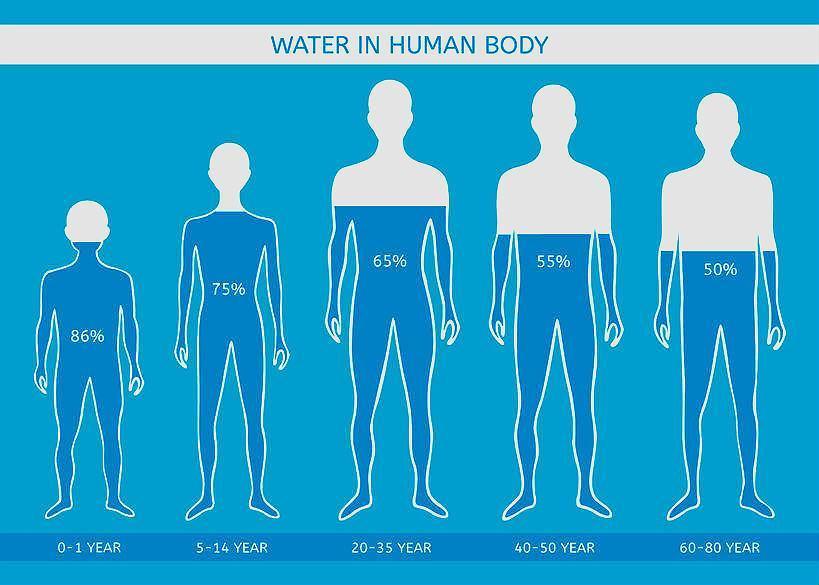

Water, often referred to as the elixir of life, plays a pivotal role in sustaining our health and vitality. Our bodies are composed of approximately 60% water, highlighting its paramount importance for overall well-being. However, as we age, our bodies undergo changes that can lead to a decrease in water content. In this blog post, we'll explore the significance of water in our bodies, the ways in which we lose it as we age, and how foam rolling with the Rollga foam roller can help rejuvenate our tissues and fascia, just like refreshing a sponge.

The Importance of Water in Our Bodies
Water is the cornerstone of our existence. It serves a multitude of essential functions that are vital for our survival and optimal health:
-
Cellular Function: Water is the primary medium through which nutrients and oxygen are transported to cells, enabling them to function efficiently.
-
Temperature Regulation: It helps regulate our body temperature, preventing overheating or hypothermia.
-
Digestion and Nutrient Absorption: Water is essential for the digestion and absorption of food and nutrients in the digestive tract.
-
Toxin Removal: Our kidneys rely on water to filter waste products and toxins from the blood, which are then eliminated through urine.
-
Joint Lubrication: Water helps maintain the lubrication of joints, reducing the risk of joint pain and injuries.
-
Skin Health: Proper hydration is essential for maintaining healthy, glowing skin.
-
Brain Function: Dehydration can impair cognitive function and concentration.

How We Lose Water as We Age
As we age, several factors can contribute to a decrease in the body's water content:
-
Reduced Thirst Sensation: Elderly individuals may experience a diminished sense of thirst, leading to inadequate fluid intake.
-
Kidney Function Decline: The kidneys' ability to conserve water diminishes with age, leading to increased water loss through urine.
-
Medications: Many medications, commonly prescribed to older adults, can have diuretic effects, increasing water loss.
-
Chronic Health Conditions: Conditions such as diabetes and certain kidney diseases can exacerbate fluid loss.
-
Decreased Muscle Mass: Muscle tissue holds more water than fat, and as muscle mass decreases with age, so does the body's water content.

Rollga Foam Rolling: Rejuvenating Your Tissues and Fascia
Now, let's explore how foam rolling with the Rollga foam roller can help address the issue of decreasing water content in our bodies.
-
Enhanced Circulation: Foam rolling promotes better blood circulation and lymphatic flow. Improved circulation means more efficient delivery of oxygen and nutrients to tissues and enhanced removal of waste products, helping maintain tissue health.
-
Fascia Hydration: The fascia, a connective tissue that surrounds muscles and organs, can become stiff and dehydrated over time. Foam rolling helps release tension in the fascia, facilitating the absorption of fresh fluids, akin to wringing out a sponge.
-
Muscle Recovery: Regular foam rolling can aid in muscle recovery after exercise, ensuring that muscles are adequately hydrated and prepared for the next workout.
-
Pain Reduction: Hydrated tissues are less likely to be inflamed and painful. Foam rolling can reduce muscle and joint pain associated with dehydration.
Water is indeed life, and its importance cannot be overstated. As we age, maintaining adequate hydration becomes increasingly crucial for our overall health. The Rollga foam roller offers a valuable tool to complement hydration efforts by rejuvenating our tissues and fascia. Think of it as wringing out the old, tired sponge of your body and replenishing it with fresh, revitalizing water. Staying hydrated and incorporating foam rolling into your routine can help you embrace the aging process with vitality and well-being.
Remember, water is not just a beverage; it's a lifeline that nourishes and sustains us from within.
CLICK HERE to Learn More and Order the BETTER foam roller for hydrating our bodies...

